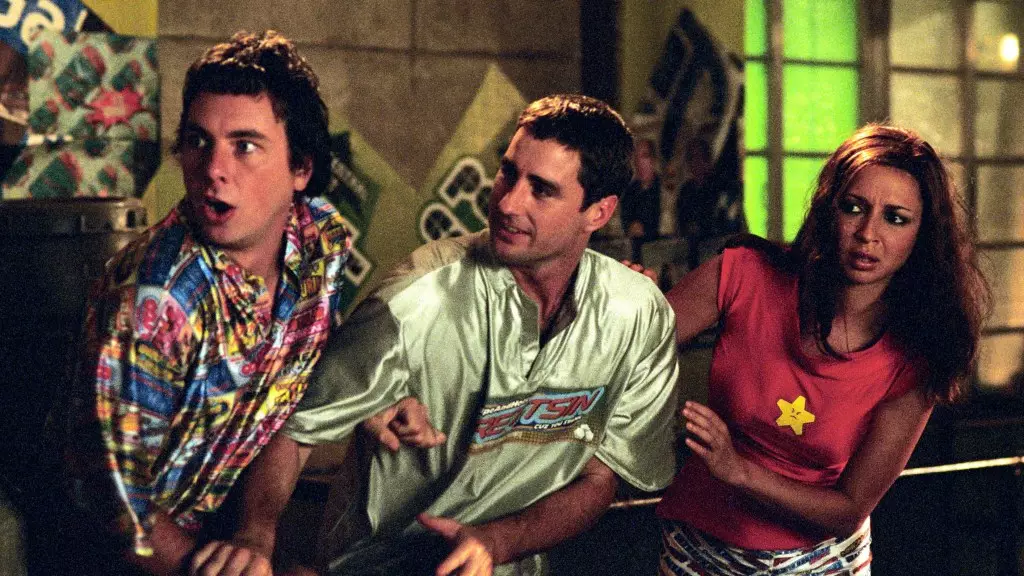The initial reception of many films often determines their longevity in the collective consciousness of audiences. However, few can rival the remarkable journey of Idiocracy, the satirical comedy directed by Mike Judge and released in 2005. Nearly two decades after its release, the film has garnered an unexpected cult following, raising intriguing questions about its prescience and relevance in contemporary society. Luke Wilson, the lead actor, recently expressed his astonishment at the enduring interest in the film and shared his persistent drive to pitch a sequel to Judge.
At its release, Idiocracy was a commercial failure, managing to scrape together only $495,652 at the box office after 20th Century Fox inexplicably limited its release. Despite its box office troubles, the film found a second life through home video and digital platforms, gradually transforming into a cultural touchstone that resonates with audiences grappling with the socio-political landscape of today. The film’s narrative, which centers around Wilson’s character, Private Joe Bowers, who is awakened from a cryogenic slumber to discover an America where intelligence has significantly deteriorated, strikes a powerful chord in an era marked by misinformation and political absurdity.
As discussions surrounding the film’s content resurface, comparisons between the character of President Camacho, played by Terry Crews, and contemporary political figures, especially former President Donald Trump, draw parallels that extend the film’s relevance beyond its initial release. Luke Wilson acknowledges this unexpected trajectory with a blend of pride and disbelief, highlighting that it is among the works most frequently mentioned by fans throughout his career. This perennial conversation surrounding Idiocracy illustrates how a film initially labeled as a curiosity has evolved into a commentary on the state of humanity.
The prospect of a sequel has been a topic of speculation among fans for years, with Wilson himself being an ardent advocate for revisiting the bizarre universe of Idiocracy. In discussions with Mike Judge, Wilson often pitches scenarios where characters like Camacho and Dax Shepard’s role could be brought into a modern context, potentially providing comedic relief while simultaneously addressing current societal issues. His enthusiasm for a sequel speaks volumes about the film’s impact on his career and its importance in popular culture.
Despite Wilson’s fervent interest, Judge remains busy and committed to other projects, leaving fans in a limbo about the future of the franchise. The idea of exploring how the world has changed—or perhaps not changed—since Bowers awakened provides a tantalizing opportunity for writers and filmmakers to explore comedic angles that reflect today’s dilemmas. Wilson noted that their humorous brainstorming sessions provide a sense of nostalgia as well as a deeper commentary on the trajectory of American society.
Idiocracy is not just a comedy; it serves as a mirror reflecting the absurdities and excesses of contemporary American culture. Its underlying theme—a society that has prioritized entertainment and mindless consumerism over education and critical thinking—is becoming increasingly relevant. The growing obsession with social media, sensational news, and polarized politics has prompted many to reevaluate the film’s portrayal of a dystopian future that felt far-fetched when first released.
Even with its humble beginnings, Idiocracy now stands as a testament to the power of satire in sparking conversation around serious topics. The film’s legacy highlights how art can transcend its initial reception to become a significant cultural commentary. In an age where information is often eclipsed by sensationalism, Idiocracy prompts valuable discussions about the importance of intelligence, awareness, and civic responsibility.
The lasting impact of Idiocracy speaks to the power of storytelling and its ability to resonate across generations. As Wilson continues to advocate for a sequel, the conversation around the film remains vibrant, proving that sometimes, the most unexpected films can offer the most profound insight into society. Whether or not a sequel ever comes to fruition, the legacy of Idiocracy as a cultural critique and its appeal in today’s context ensure that it will not be quickly forgotten. Audiences continue to find meaning in its humor, and its relevance will likely persist as long as society grapples with the complexities of intelligence and governance.


Leave a Reply